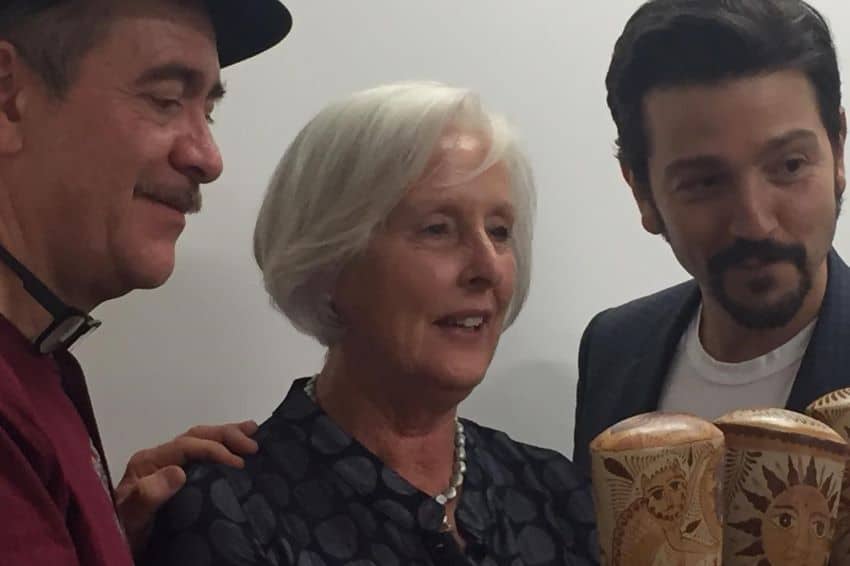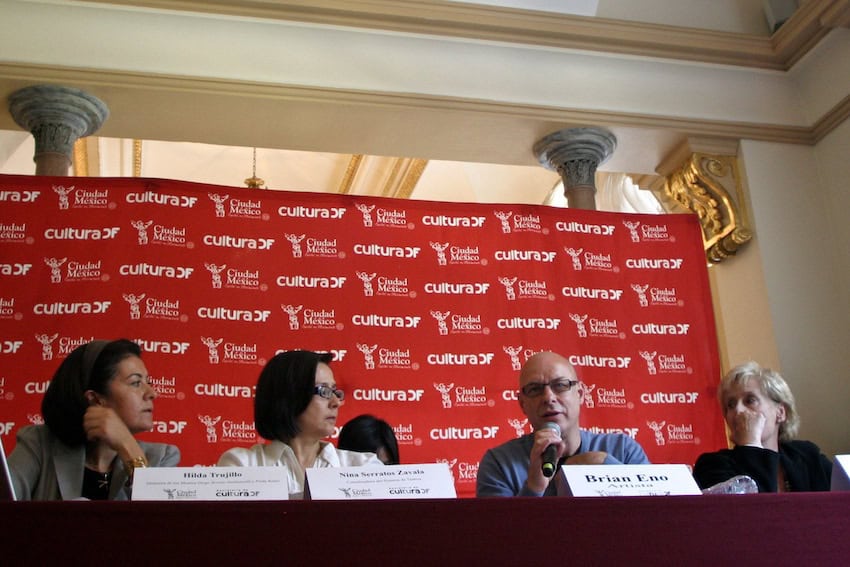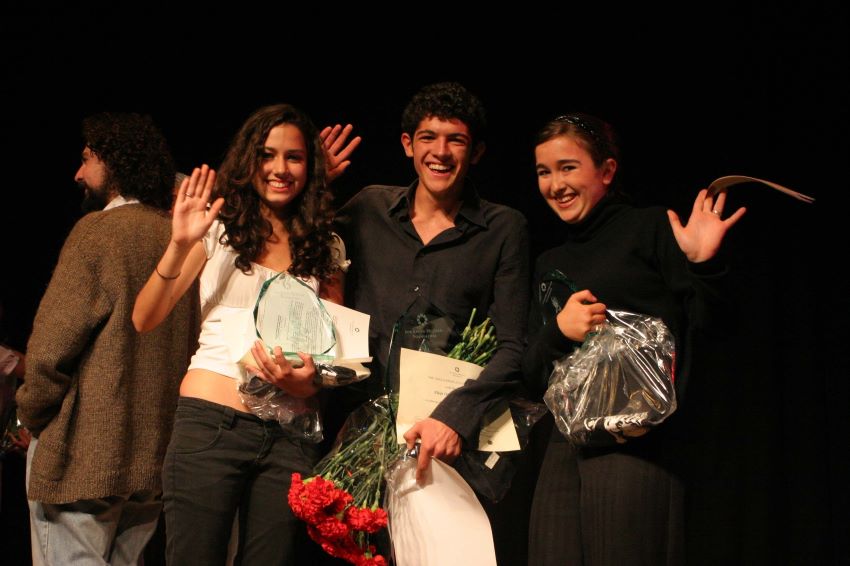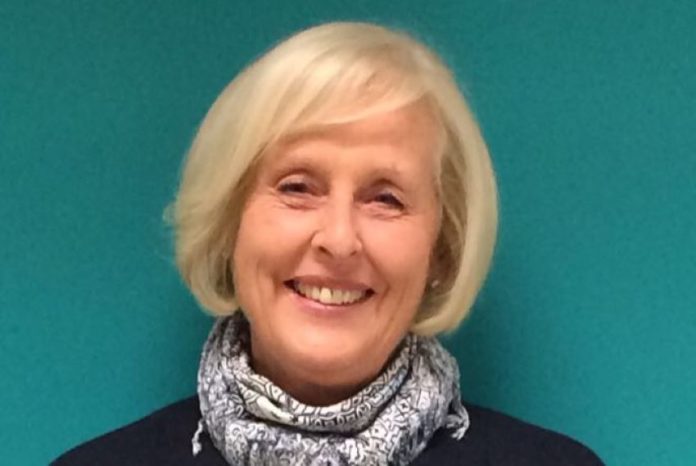Susan Chapman arrived in Mexico City in late 1977 as a young mother of two small children and with a plan to stay for three years. She ended up staying for four decades, building bridges in the arts between Mexico and the English-speaking world and impacting countless people’s lives — culminating in the great accolade of becoming an MBE (Member of the Order of the British Empire), bestowed upon Chapman by Her Majesty the Queen in 2005 for services towards the strengthening of cultural relations between Mexico and the United Kingdom.
Having now returned to live in the U.K., I ask Susan what she misses about Mexico, knowing the question is too large to answer. She starts small: the sound of the Mexican street callers, such as the knife sharpeners and ice cream vendors, widening out to the warmth and welcome she received when she arrived, and how it gradually thawed that classic British reserve and allowed her to create a life of meaning. Simply put, she says Mexico completed her and that she misses it tremendously.

Susan, the daughter of an academic clergyman of the Anglican Church and a ballet dancer, grew up immersed in music and performance from a young age. Once in Mexico City, she found community in musical groups, singing a classical oratorio repertoire in halls such as the UNAM’s Sala Nezahualcóyotl and the Palacio de Bellas Artes. In 1983, she founded a group of singers, instrumentalists and Renaissance dancers, Il Piacere, which was talent spotted by a French impresario who invited them to tour in France in the summer of 1989.
The catch was that he wanted them to perform Latin American 16th and 17th-century music, which no one had any experience with. Their director bowed out and they scrambled around for someone to take his place before clicking with a Peruvian musicologist. This was just a preview of what would become a lifelong theme of service to the arts and to the countries Susan called home.
Over the years, often on a shoestring budget and by pure force of will, Susan has arranged for artists to travel and perform, created scholarships for promising musicians and writers to gain access to the best training and brought performing artists together from different countries to play and learn from each other. She brought poet laureates, musicians, actors, dancers and prestigious choral groups to Mexico and assisted with education projects between visiting musicians and underprivileged children. Susan refused to ask artists to work for nothing, so, like so many other producers, would frequently have to brave the white-knuckle financial risk of filling a theater.
One of the organizations that enabled Susan to create such bilateral cultural projects, and for which she is deeply grateful, was the Anglo Mexican Cultural Institute (now the Anglo Mexican Foundation), founded in 1943 by the British government to provide English language teaching in Mexico. In the mid-1990s, Susan was asked by the board of the institute to design a cultural activities program, and when it turned out there was no one to run the program, she took over as a one-person department, which later became Anglo Arts.

Susan worked out of the Anglo’s headquarters in the Colonia San Rafael, which had a small theater designed by actor Diego Luna’s father, Alejandro Luna. In the beginning, it was just Susan, her old typewriter and a desk, sitting in a corner of the library there. Twenty years later, they were a team of five people running a bilateral cultural program that saw constant activity and high-caliber talent.
As with so much of Susan’s story, her next steps could be described as surprising and in hindsight, self-evident. She began to bring actors and directors from the U.K. to perform in Mexico and in 2002, in collaboration with the British actor Stuart Cox, founded a Shakespeare Competition for English language schools. Students performed Shakespeare’s plays for a chance to visit and perform on the stage at Shakespeare’s original theater, The Globe, in London.
I mention to Susan that I remember attending the season of plays at The Globe to celebrate Shakespeare’s 400th anniversary and watching a brilliant Mexican troupe perform through a freak May hailstorm. Not only did she tell me which play it was — Henry the IV Part I — but also that she helped bring the troupe over in collaboration with Mexico’s National Theater Company and that she was also there in the audience. It seemed a fantastic coincidence that we were both standing there watching a Mexican Falstaff prance around the stage while the brass band played and the heavens opened up.
Such was its success that when the troupe returned to Mexico, with the support of the National Institute of Fine Arts (INBA), Susan helped organize the construction of a replica Globe theater to be built in the Zócalo, so those in Mexico City could enjoy the performance. In collaboration with the international program of the Royal Court Theater in London, Susan also paved the way for a Mexican play, “A Soldier in Every Son,” by the actor and dramaturge Luis Mario Moncada, to be translated, directed and produced by the Royal Shakespeare Company in Stratford.

It seems like wherever there was an opportunity to provide a platform for the arts, Susan was right there, getting it built by whatever means necessary. When the room in Frida Kahlo’s Blue House was unlocked to reveal her fantastical wardrobe, Susan was part of the team that ensured the world would see it.
Diego Rivera had decreed that Frida’s wardrobe stay locked up for 20 years, though it ended up being far longer than that because the room was simply forgotten about. Inside were delicate dresses, accessories and corsets that were unique to Frida Kahlo, and Susan became deeply involved with the dream that the collection might one day be loaned to the V&A Museum in London. What seemed like a straightforward plan ended up taking years of negotiating and countless diplomatic dinner parties, but her love of the arts eventually prevailed and the exhibition continues to tour the world.
As I speak to Susan from her study in England, she looks down at her extensive list of collaborations and accomplishments, of which we’ve only touched on here, with a sense of bafflement at how it all came together. It seems clear that her love of artistic expression opened the doors for her and so many others, and she is full of gratitude for having had the chance to work with such amazing artists.
Susan is currently in the process of arranging for a young group of musicians by the name of The Paddington Trio to perform in Mexico in October 2024. Where they will play has yet to be confirmed, but no doubt Susan will make it happen.
This article is part of Mexico News Daily’s “UK in Focus” series. Read the other articles from the series here.
Sasha Frost is a writer, illustrator, and animator. He can currently be found exploring the art and food scenes of Mexico City. When not out in the world, he’s telling stories online at www.sashafrost.com and on IG @sashafrost_art.
